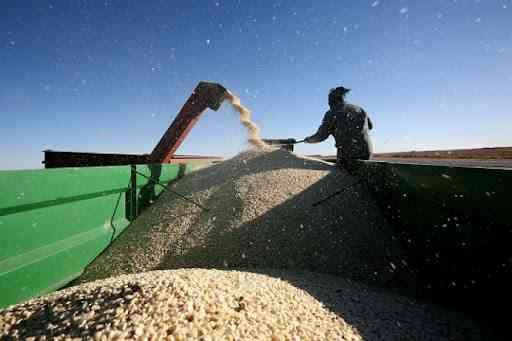Zimbabwe News Update
📅 Published: August 18, 2025
📰 Source: newsday
Curated by AllZimNews.com
📅 Published: August 18, 2025
Curated by AllZimNews.com
These receipts can be used as collateral for loans or traded for immediate cash, allowing farmers to reinvest early in inputs and stabilise production cycles.
Consequently, warehouse receipts can be used to access working capital in advance, allowing farmers to reinvest in inputs and sustain production cycles.
For millers, GMAZ millers have committed to purchasing grain stored under these receipts through forward contracts — enhancing the credibility of these financial instruments and encouraging broader participation from banks, pension funds, and microfinance institutions.
These forward contracts reduce the pressure for upfront payments by allowing delivery in smaller, manageable tranches aligned with processing needs.
GMAZ chairperson Tafadzwa Musarara hailed the partnership as a historic milestone. “Today we make history by signing an enabling agreement that will fully operationalise our commodities exchange by committing to procure all the maize brought to ZMX,” he said. “This aligns with international best practices and marks a departure from the past, where the fiscus carried the full burden of grain procurement. ” He noted that the deal comes at a crucial time, as the country recovers from the worst drought in recent memory experienced in the 2024/25 agricultural period.
Between September 2023 and June 2025, private millers imported 1,34 million tonnes of white and yellow maize to cover the deficit caused by the drought. “Relying on imports is unpredictable.
Promoting local production is not just noble, it’s the most viable option for our business,” Musarara said.
He added that since 2019, GMAZ and its contracting partner, the Food Crop Contractors Association, have supported over 800 000 hectares of maize and wheat under contract farming.
The association now plans to extend this model to rice production to meet growing domestic demand.
ZMX chairperson Derek Odoteye said the partnership was part of a broader strategy to professionalise commodity trading and support national goals such as rural development, price stability, and food security. “This is more than just a trading deal.
It’s about building a resilient and integrated grain supply system that benefits farmers, processors, financiers and government planners,” he said. 🔗
” style=”color: #007bff;”>admin@allzimnews. com.
Get the complete story and stay updated with the latest Zimbabwe news
📖 Continue Reading
This is a preview of the full article. To read the complete story, click the button below to visit newsday.
🔗 Read Full Article on newsday
AllZimNews aggregates content from various trusted sources to keep you informed.
📰 Source:
newsday
Aggregated by AllZimNews – Your trusted source for Zimbabwe news
